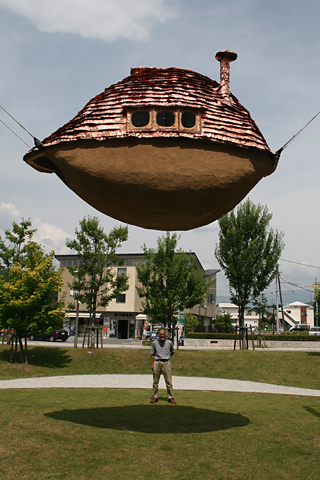Born 1946 in Nagano Prefecture (Japan), based in Tokyo.
Fujimori is a leading researcher into modern Japanese architecture and is renowned as the architectural historian who coined the term "billboard architecture" for the flat-façade commercial buildings that sprang up in Tokyo after the destruction of the great 1923 earthquake. He founded the Architecture Detective Unit in 1974, and together with Genpei Akasegawa et al. was also a founding member in 1986 of the ROJO Society, a group that scours the urban landscape for objects that have evolved a significance that they did not originally have. He later made his architectural debut with the unusual structure of the Jinchokan Moriya Historical Museum (1991), and went on to design several unique homes and teahouses, including his own residence ("Dandelion House", 1995) and "Takasugi-an / Too-high Tea House" (2004), forming the Jomon Architecture Group to build them. His buildings have a sense of belonging in their particular place, and though they are the sort of thing that exists nowhere else, or that we think we've never seen before, they also induce feelings of familiarity, even nostalgia, earning the label "International Vernacular." Fujimori exhibited in the Japanese pavilion at the 10th Venice Architecture Biennale (2006). The acclaim he received there led to his exhibiting in Britain, Australia, Taiwan, and elsewhere overseas. Fujimori is especially noted for his humorous teahouses, like the "Flying Mud Boat" in Chino City (2010) and the "Walking Cafe" in Munich (2012).

|
"Flying Mud Boat," 2010 courtesy of the artist |





